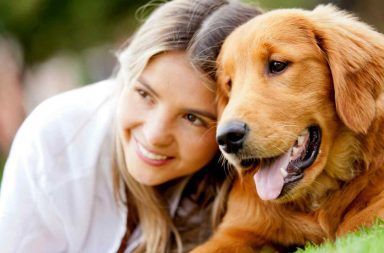Why do some people love animals while others do not?
People (novice) of cats, dogs and small pigs in addition to other pets recently may point out that pet breeding is nothing more than passing fashion.
In fact, it is often thought that pets are only influenced by Western appearances or a strange extension of working animals that have been raised in ancient societies.
About half of the households in Britain alone have a pet, about 10 million of them dogs, while cats make up another 10 million.
Pets cost time and money, but they may bring little material benefit these days.
During the 2008 financial crisis, spending on pets was almost unaffected, indicating that for most breeders it is not a luxury but an integral part of the family.
So why do some people care about pets, while others do not?
Most likely, our desire to accompany animals for tens of thousands of years has played an important role in our development.
If so, genetics may help explain why some people do not want to buy an animal at home.
Health question
More recently, more attention has been paid to the idea that the acquisition of a dog (or perhaps a cat) can bring benefits to the health of owners in various ways such as reducing the risk of heart disease, fighting loneliness, alleviating depression and symptoms of depression and dementia.
But we have two problems with these allegations:
First, there is a similar number of studies indicating that pets do not have a slight negative health impact.
Second, pet owners do not live longer than those who have not even thought about buying a pet; which makes these claims questionable.
Even if these claims are true, these presumed health benefits apply only to the urban population and their daily pressures, not to our predecessors of ancient fishers; therefore, these benefits can not be considered the reason for our breeding of animals in the first place.
The desire to bring a pet into our homes has become so widespread that you tend to think that it is a universal feature associated with human nature; however, many societies do not.
Even in the West, there are many people who do not feel any special attraction to animals (pets or otherwise).
Pets are often raised in families. This is because children want to imitate their parents' lifestyle when they leave home, but recent research has found that this habit is also a hereditary basis.
So some people seem, regardless of their origins, ready to look for animals, others are less.
Those genes that encourage us to raise pets may be unique to humans, but they are not universal. This suggests that some, but not all, societies and individuals have flourished in the past because of the instinctive relationship between humans and animals at the time.
DNA for pets
Today's DNA tells us that the separation of each species from its wild counterpart was between 5,000 and 15,000 years ago, in the late Paleolithic and Neolithic periods. Yes, in this era also we started raising cattle.
But knowing how they can achieve this is not easy, as these dogs, cats, cows and primitive pigs were treated simply as commodities.
As such, the available technology is unable to prevent unwanted mating between wild and domesticated breeds, which have been able to reach each other in the early stages, thereby reducing the Tameness genes indefinitely, thus slowing down the speed of grazing to the degree Great ¬- or even reverse.
In addition, famine has encouraged people to slaughter the domesticated breed (which they are breeding), leading to the complete disappearance of the domestication genes (in those areas).
But at least treating some of these animals - as early as tame - as pets, as in human habitation would have prevented wild males from making their way towards female molesters; this particular social situation, as for pets used in hunting and gathering, It prevents their consumption as food and preserves them.
By remaining isolated in these ways, these semi-domesticated animals evolved far from their wild ancestors and became the obedient monsters we know today.
The same genes that make some people predisposed to raising their first cat or dog, had previously spread among these early farmers.
These groups of human beings with animal sympathizers - who were able to understand the breeding and breeding of animals - thrived at the expense of those who did not have these qualities; they had to continue to rely on hunting for meat.
But the question remains why does not everybody feel the same way?
Perhaps because of alternative strategies such as stealing domestic animals or enslaving those who raise them from humans, which were available at some point.
As a final twist of this story: Recent studies have shown that pet love is associated with concern for the natural world and concern for it.
It seems that people are divided into those who feel a simple affinity with animals or nature, and others ready to enjoy both, have taken animal husbandry as one of the few outlets available to our civil society these days.
As such, pets can help us reconnect with the nature we evolved from.

Very interesting article,congratulation...upvoted
@kinaabderrahmane

4.55% @pushup from @tag2017
This post has received a 14.29 % upvote from @kittybot thanks to: @tag2017.
Pets are almost in every household in the part of US that I reside in. There is even a dog park just outside the parking lot. I don't mind the idea of pets but cleanliness and hygience must not be compromised. Pets should have their designated space and not mix all over the place. And the owners should keep their place clean. Certain things like books (that may contain certain words and text that should be respected because of its content) should not be even allowed near an energetic dog for example.
I respect your opinion
This post has received a 0.98 % upvote from @buildawhale thanks to: @tag2017. Send at least 1 SBD to @buildawhale with a post link in the memo field for a portion of the next vote.
To support our daily curation initiative, please vote on my owner, @themarkymark, as a Steem Witness
This post received a 1% upvote from @morwhale team thanks to @tag2017! For more information, click here! , TeamMorocco! .